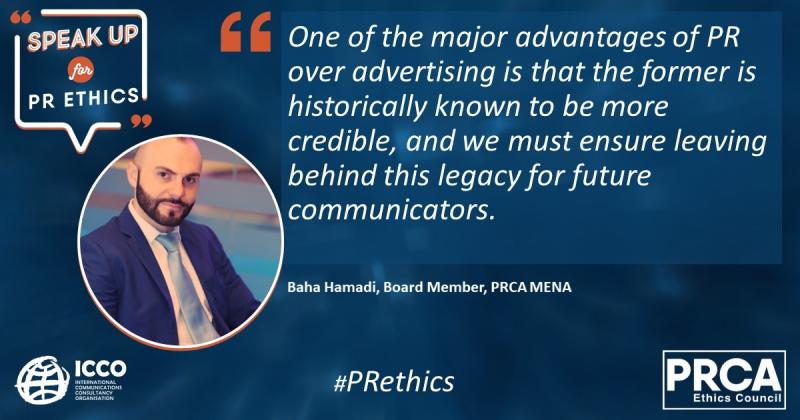
PR professionals are mainly in the business of information sharing. Be it online or offline, we bear the responsibility of consistent transparency. Without open and honest communications, there is no trust. And without trust, we won’t really build healthy ‘relations’ through Public Relations.
Many of us make daily decisions based on a Google search. Intentionally deceiving information not only impacts everyday consumer decision-making, but may also lead to detrimental consequences on the economy, society and our planet.
Could the plague of misinformation in parts of our sector eventually invite the attention of regulators to identify and penalise unethical PR practices? Isn’t it a matter of great public interest to examine the increasingly wild misreporting and ultimately eradicate the culture of hyperbole burning into our sector? Most importantly, can we tackle this problem from within?
The widespread lack of authenticity in rhetoric is creating a climate of distrust. Consumers have grown cynical about ads, publicity stunts and even influencer marketing. The inequality between words and actions may indeed induce legislation, imposing a set of measures to hold prolific breeders of misinformation accountable—especially influential information published on the largely lawless world wide web.
Let’s assume these measures would range from warnings and retraction notices for trivial breaches, to harsher penalties in the event of total non-compliance or major violations. For instance, making a big statement or fabricating one would require substantiation, given the statement presents an objective assertion about a product, service, initiative or executive. Repeat offenders who continuously exaggerate or spread deceptive claims would be jeopardising their careers or businesses, and perhaps losing their social license to operate.
As the PR and communications function evolves, it is only right that we introduce checks and balances designed to ensure sound governance within the sector. Similar to Facebook’s Oversight Board, which is tasked with making principled, independent decisions regarding content, the purpose of a PR watchdog would be to deliberate over misleading claims and determine their validity.
In the UAE, the advertising sector is regulated to ensure consumer protection against misleading and false ads. Regulating PR seems to be the right next step if we envisage a PR sector of complete integrity. But instead, we can self-regulate and safeguard the credibility of our own marketing discipline. One of the major advantages of PR over advertising is that the former is historically known to be more credible, and we must ensure leaving behind this legacy for future communicators.
To self-regulate, we should ask ourselves a fundamental question: Should PR professionals be loyal only to their employers, or should they nurture broader stakeholder loyalties? It is a question of good conscience and adherence to a code of ethics centered around the interest of all. Loyalty towards one’s employer is paramount and there shouldn’t be a conflict of interest between PR professionals with moral principles, and businesses with genuine purpose. Yet in this context, being torn by divided loyalties to all stakeholders is a sign of social responsibility and good ethics in PR professionals.
Today more than ever, communicators have a responsibility to tell their employer’s ESG story. Equal loyalty to all stakeholders helps maintain honesty and integrity in storytelling. PR practitioners are expected to be impartial and transparent—they owe it to themselves, consumers, the profession, the media, and society at large.
Corrective and preventive action from within the sector means re-evaluating ‘content strategies’ and setting standards to remain realistic and truthful in what we say and how we say it. Content represents the common denominator in the marketing mix. And as leaders of content, PR professionals deserve to rise to prominence instead of bearing the notoriety of spin doctors and masters of the art of fact-twisting.
On that note, fact-checking is not only the responsibility of the media—it is also our duty as an established community of PR practitioners. Spicing up a story is one thing, bordering on dishonesty is another.
Let’s take a step back and know when to dial down the tone of our narrative. Otherwise, we will have to brave the scrutiny of a jury critiquing our PR work, and deal with the reputational or legal consequences of what could be perceived as unethical influence tactics.
